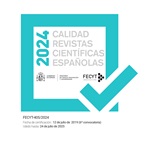El consentimiento informado como derecho fundamental del paciente. La sentencia TEDH de 8 de marzo de 2022, Reyes Jiménez c. España. (RI §425717)

Informed consent as a fundamental right of the patient. Judgement of the ECHR of 8 march 2022, Reyes Jiménez v. Spain -
Tais Deus Ramos
El consentimiento informado es el consentimiento libre, voluntario y consciente prestado por un paciente en el pleno uso de sus facultades (o, en su defecto, por sus representantes), requerido para que tenga lugar una actuación que afecta a su salud. También es un derecho propio del paciente, que deriva de los más amplios derechos a la autonomía personal y a la integridad física y, en último término, de la dignidad humana. El TEDH ha desarrollado una jurisprudencia que protege este derecho frente a injerencias del Estado o de terceros, de la que el asunto Reyes Jiménez constituye el último paso. En él, el Tribunal establece que, aunque el Convenio no exige que el consentimiento se preste por escrito, cuando una normativa nacional así lo exige, los tribunales nacionales deben respetar esta previsión.
I. INTRODUCCIÓN. II. CONSENTIMIENTO INFORMADO. REGULACIÓN INTERNACIONAL. III. EL CONSENTIMIENTO INFORMADO EN LA JURISPRUENCIA DEL TEDH. 1. El consentimiento informado en el Convenio Europeo de Derechos Humanos. 2. Casos concretos. IV. EL CONSENTIMIENTO INFORMADO EN EL DERECHO ESPAÑOL. EN ESPECIAL, LA FORMA DEL CONSENTIMIENTO. V. LA SENTENCIA DE 8 DE MARZO DE 2022, REYES JIMÉNEZ C. ESPAÑA. 1. El procedimiento ante los tribunales nacionales. 2. La sentencia del Tribunal Europeo de Derechos Humanos. VI. CONSECUENCIAS DE LA SENTENCIA EN DERECHO ESPAÑOL.
Informed consent is the free, voluntary, and conscious consent given by a patient in full use of their faculties (or, failing that, by their representatives), required for an action that affects their health to take place. It is also a patient's right, which derives from the broadest rights to personal autonomy and physical integrity and, ultimately, from human dignity. The ECHR has developed a jurisprudence that protects this right against interference by the State or third parties, of which the Reyes Jiménez case constitutes the last step. In it, the Court establishes that, although the Convention does not require consent to be given in writing, when a national law requires it, national courts must respect this provision.
I. INTRODUCTION. II. INFORMED CONSENT. INTERNATIONAL REGULATION. III. INFORMED CONSENT IN THE CASE-LAW OF THE ECtHR. 1. Informed consent in the European Convention on Human Rights. 2. Specific cases. IV. INFORMED CONSENT IN SPANISH LAW. IN ESPECIAL, THE FORM OF THE CONSENT. V. THE JUDGMENT OF MARCH 8, 2022, REYES JIMÉNEZ V. SPAIN. 1. The procedure before the national courts. 2. The judgment of the European Court of Human Rights. VI. CONSEQUENCES OF THE JUDGMENT IN SPANISH LAW.

 DIRECCIÓN / MANAGEMENT
DIRECCIÓN / MANAGEMENT